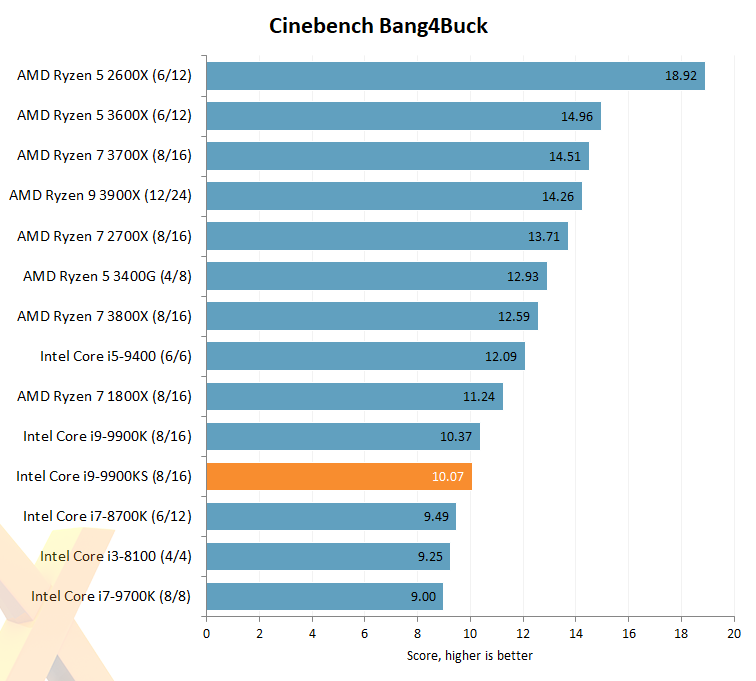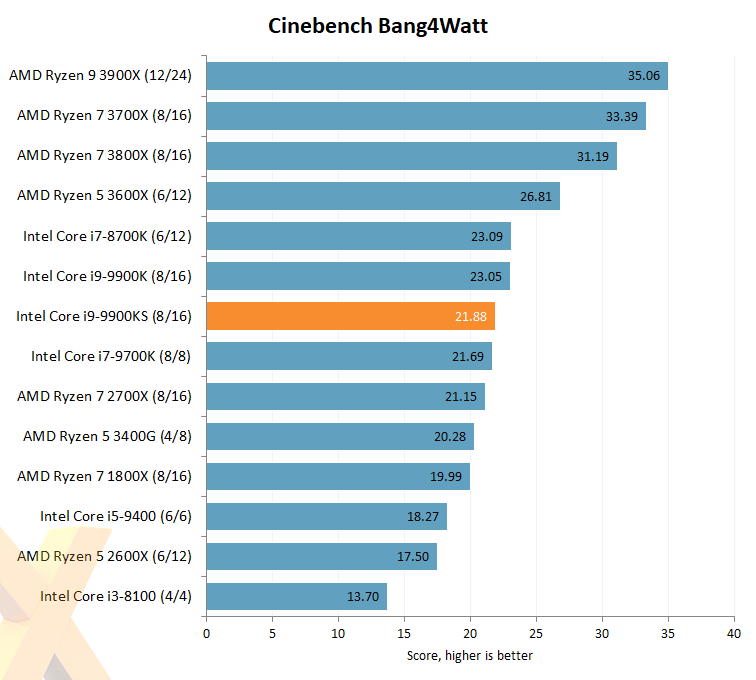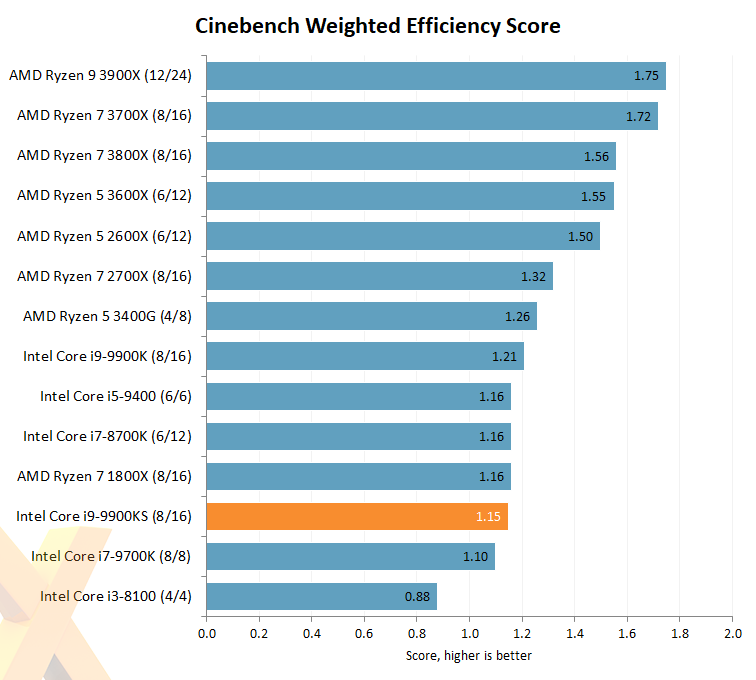Bang4Buck and Bang4Watt
The performance benchmarks on the previous pages tell part of the story, but it is always fun to add some Bang4Buck metrics into the mix. Do be aware that there are many methods of calculating such results - different benchmarks will skew the outcome, and prices can both fluctuate daily and vary wildly depending on region.
We've chosen to use the multi-threaded Cinebench R20 test as a basis for our results, and pricing was taken from Newegg.com, or SRP pricing, as on October 29, 2019.

These scores simply divide the Cinebench R20 score by the dollar price or SRP. Core i9-9900KS falls marginally behind the K version because it costs 5.1 per cent more but is only 2.8 per cent faster in this particular test.
What's patently clear is that, using this workload, AMD is comfortably ahead of Intel.

This graph divides the same Cinebench result with the system-wide power consumption we observe during evaluation.
The high power consumption of the system, caused by letting the chip run free, pushes this metric to the middle of the table. The Ryzen 9 3900X is 60 per cent better in this regard.

This metric takes 18.92 as the ceiling for Bang4Buck, and 35.06 for Bang4Watt, and combines them into a weighted score where a maximum of 2 is possible.
The relative expense and high power consumption both conspire to hobble the Core i9-9900KS' performance.


